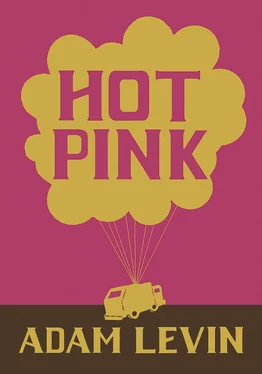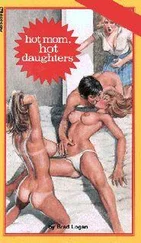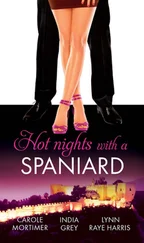“Was it about the accident again?” says Susan’s mother.
Susan shuts her eyes with a force that, had she any magic in her, would be great enough to knock the whole penthouse into orbit. Susan’s mother likes to talk about the accident. She likes to say, “Susan would do well to talk about the accident, herself.” She says it to everyone.
“I asked if you dreamed of the accident,” says Susan’s mother.
“The accident?” says Susan. “How could I remember the accident well enough to dream about it, anyway ?”
“Now don’t—”
“Don’t what?” Susan says. “Don’t mention your lackluster mothering style? Your irresponsibility? Don’t question the sanity and goodness of a woman who’d not only leave her baby on a jungle floor but let the wounds she suffered by the leopard’s fangs fester and—”
“Oh, the leopard . Isn’t it pretty to think so!” Susan’s mother says. Susan’s mother sneezes, angrily, and screams for Susan’s father.
Susan’s father, dressed in beige suit-pants with braces half-braced, his untucked U-shirt flapping at his belt-line, thumps down the spiral staircase to the kitchen. “What is it?” he says. “What’s happened?”
“She’s talking about leopards again.”
“Oh my God.”
“Forget it,” Susan says. “Forget it.”
“Susan, do you need to go back to the hospital?” Susan’s father says.
“You’re still in the denial stage,” Susan tells her father. “Dr. Fleem told me to expect that from you. But what I want to know is: what about me? What about me?”
“Damn that Fleem,” Susan’s mother says, and to her husband: “Call the Medicar.”
“Frances, just hold your horses for just a second here, honey.” Susan’s father pulls a cigar from somewhere in his pants and fondles it against the beam of a mean halogen bulb. He says, “Now Susan. What was it you were saying? Something about leopards?”
“No. Nothing,” Susan says. “I wasn’t saying anything about leopards.”
“How did you lose your legs, Susan?” Susan’s father says.
Susan is crying. Her mother is staring at her. Her mother looks like a bug and Susan does not want to one day look like her mother. “A car,” Susan says.
The egg dish that Jiselle made is getting cold and it looks very good, too, very tasty. Last night, Jiselle told Susan that she’d been formulating this egg recipe, experimenting with temperature, testing various sauces, spices, and coagulants for nearly six months, and that it had, at last, become perfect; there was not a similar egg dish all the world round, at least not one Jiselle had heard of, and while it was true that the appeal of eggs for breakfast tended to be their banality, Jiselle believed the dish, novel though it was, would, owing to its deliciousness, prove itself to have serious staying power. Last night, Jiselle told Susan that, in her most private thoughts, she called the thing Jiselle’s Delicious Egg Dish and that, of late, she had something of a dream, and this dream (in sum) was of Jiselle’s Delicious Egg Dish becoming vastly popular over the next twenty years, worldwide popular, and thereby eventually becoming a banal egg dish itself, at which point the dish’s name would be simplified, shortened, to Eggs Jiselle.
And now it was getting cold, Jiselle’s Delicious Egg Dish. The auburn-tinged glaze atop the whites was becoming a filmy gel.
“She’s only just saying it,” Susan’s mother says. “She doesn’t really mean it. She’s only just saying it.”
“Now, now, Frances. Susan, tell us more. You said ‘a car.’ What about a car?”
“I was playing in the street with Pedro. A car ran us over and I lost my legs.”
“How old were you?”
“It was last year.”
“How old were you, Susan? was the question.”
“I was thirteen when the car hit me. It was the day before my birthday. I turned fourteen the day they hacked off my legs.”
“Who hacked them off?”
“The doctors.”
“Where did the doctors hack your legs off?”
“In a rondavel.”
“Susan!” Susan’s mother says.
“My legs were infected, Mom, and after lightly anesthetizing me with an orally administered paste of palm wine and pulverized valerian root, the doctors, as you like to call them, chopped off my legs with their rusty machetes in a dung-floored, thatch-roofed rondavel.”
“Medicar!”
“Just kidding,” Susan says. “It was at Children’s Memorial.”
“Liar. You’re lying. You don’t believe what you just said.”
“I need to go to school now,” Susan says.
“You need to go back to high school, young lady.”
“I hate high school.”
“High school was the most glorious time of your life.”
“I need to go to school.”
“Not until…”
“Please, Mommy. I’m sorry. I love you. You didn’t leave me to the teeth of that dastardly leopard. Please, let’s just eat our Eggs Jiselle and get on with the day.”
“Eggs Jiselle! Did you hear that, Frances?”
“She sure can turn a phrase, Mike, can’t she, our girl Susan. Little smartypants. How much do you love Mommy?”
“This much.”
CHAPTER 130,022
MIDRASH IN THE MORNING, NOWHERE DEEP INSIDE DOES SHE
Susan has the duration of the ride to campus to do yesterday’s assignment for Media Studies 761: Consuming God. She takes Genesis Rabbah, a book of midrash, from her bag, and reads a story about God and Adam that her professor has asked her to present to the class this afternoon. He wants her to frame it as “the first ever buyer-empowerment scheme.”
The story: Before there was an Eve, Adam was lonely and bored and sad, and, to fascinate him, God revealed the future of the world, taking care, as He did so, to remove all episodes that would occur within the span of Adam’s lifetime. Though God’s plan worked at first, Adam eventually grew distracted by his loneliness again. God reconsidered showing Adam his own (Adam’s own) future life, but judged, for the second and final time, that doing so would be a grave misstep, and instead chose to try His hand at improvisation. Rather than continuing to show Adam what would be, God showed him what could be, were one event that was slated to occur one way to instead occur another way.
1The story of David — who slew Goliath, loved Bathsheba, and, as its strongest king, made of Israel an empire — was particularly moving to Adam, despite his knowledge that it was only a could-be, that David would, as originally foretold by God, die at birth. Only a few words into the Psalms, which God had spelled out for him in clouds, Adam found himself weeping at the thought that David would never write them, and he transferred seventy years of his allotted thousand to David, so that David would survive beyond birth and do everything that, before the transfer, only he could have done.
What Susan believes: Adam gave life to David out of love for David.
What Susan would like to believe: Adam gave life to David out of love for the world — gave David life so that the world would not be deprived of David.
What she is being asked by her professor to spin: Adam gave life to David out of love for Adam. Being that Adam was the first man, Susan plans to tell the class, all men would be of him, and being that Israel, under David’s reign, would be the world’s greatest kingdom, Davidic-era Israel would be the greatest achievement to come of Adam’s creation. Susan would say that Adam, as he read the Psalms in the sky, was not moved 2as much by their beauty as by how their beauty would affect his legacy. She would say that Adam wept at the possibility that his legacy could be so glorious, yet wouldn’t be so glorious if he failed to take action. She would quip, “And therefore, Adam’s giving of life would be better described as spending, and better yet as investing, for its purpose was to ensure a future payoff.” If the class was with her — they rarely were — she planned to close with a joke about “the intricacies of calculating a time-lost to glory-increased ratio.” With or without the joke, she was confident she would get an A.
Читать дальше











